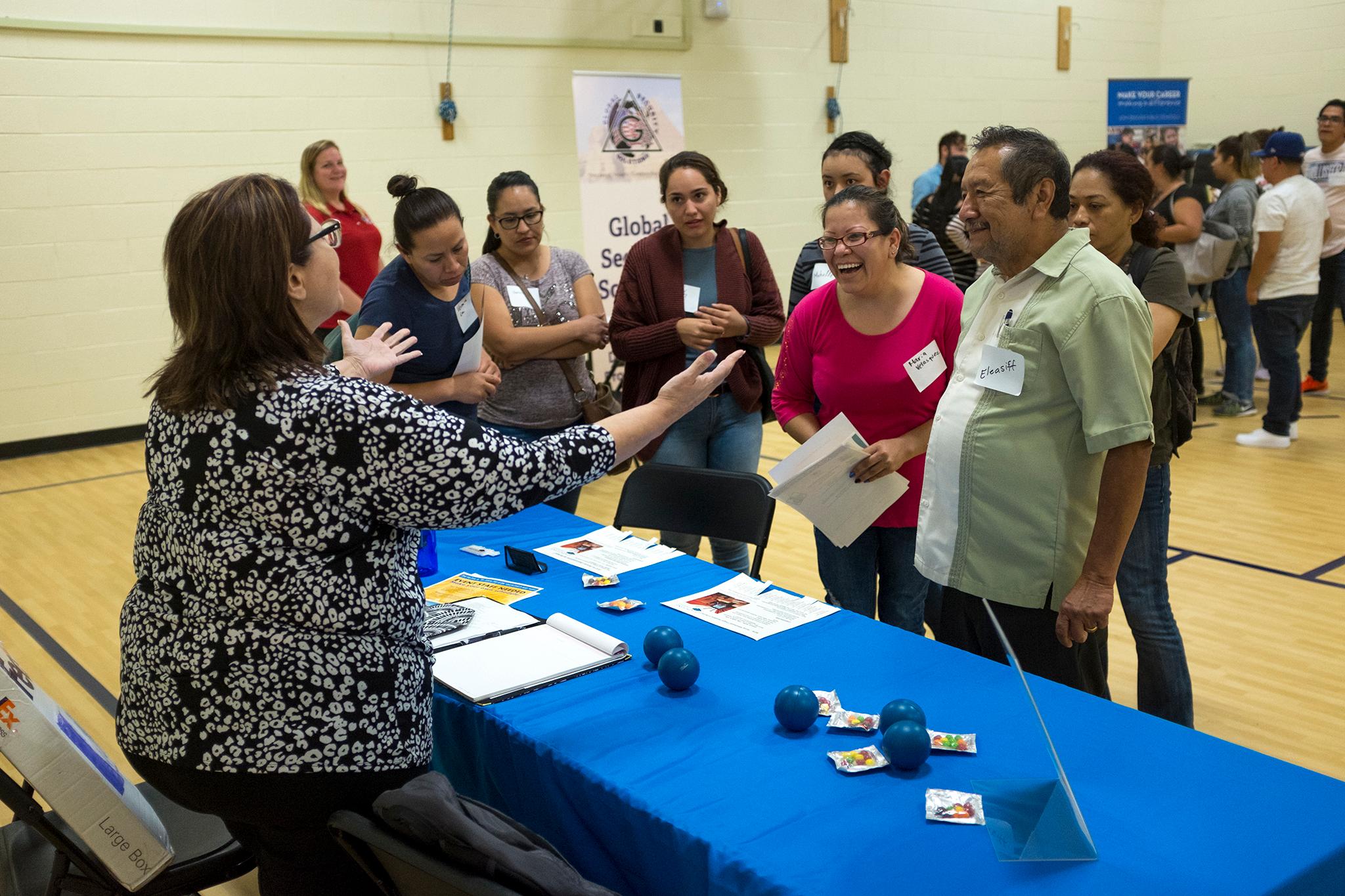On Thursday evening, Shaun Gain and Nicole Barr sat behind a table in the John Amesse Elementary School gym hoping they'd make some hires. The assistant managers with Floor & Decor, sellers of home materials, have had a heck of a time keeping positions filled in their Stapleton branch. They'd come to this job fair trying to fix that.
The event was one of the last of 25 hiring fairs put on by the Denver Department of Economic Development for Workforce Development Month, a national effort that's been particularly important for this city. Denver has seen record low unemployment rates in the past few years, which means employers across many industries have had trouble finding talent. It also means the job fair inside the Montbello school was fairly empty.
Gain was disappointed, but this wasn't the first time. He just moved to Denver from Savannah, Georgia. When he arrived, he spent three months living in a hotel and working to hire as many people as he could. He participated in a job fair where he fielded more than 1,000 people. But job seekers who had made appointments showed up for interviews in T-shirts and shorts, if they showed up at all, and he only managed to hire 30 people out of that pool.
"Anyone with low skills is hard to find," he said.
And, for some reason, offering a decent paycheck isn't always enough.
In Savannah, he said, "People take a $10 an hour job and keep it for life."
In Denver, "You can’t throw money at these people."
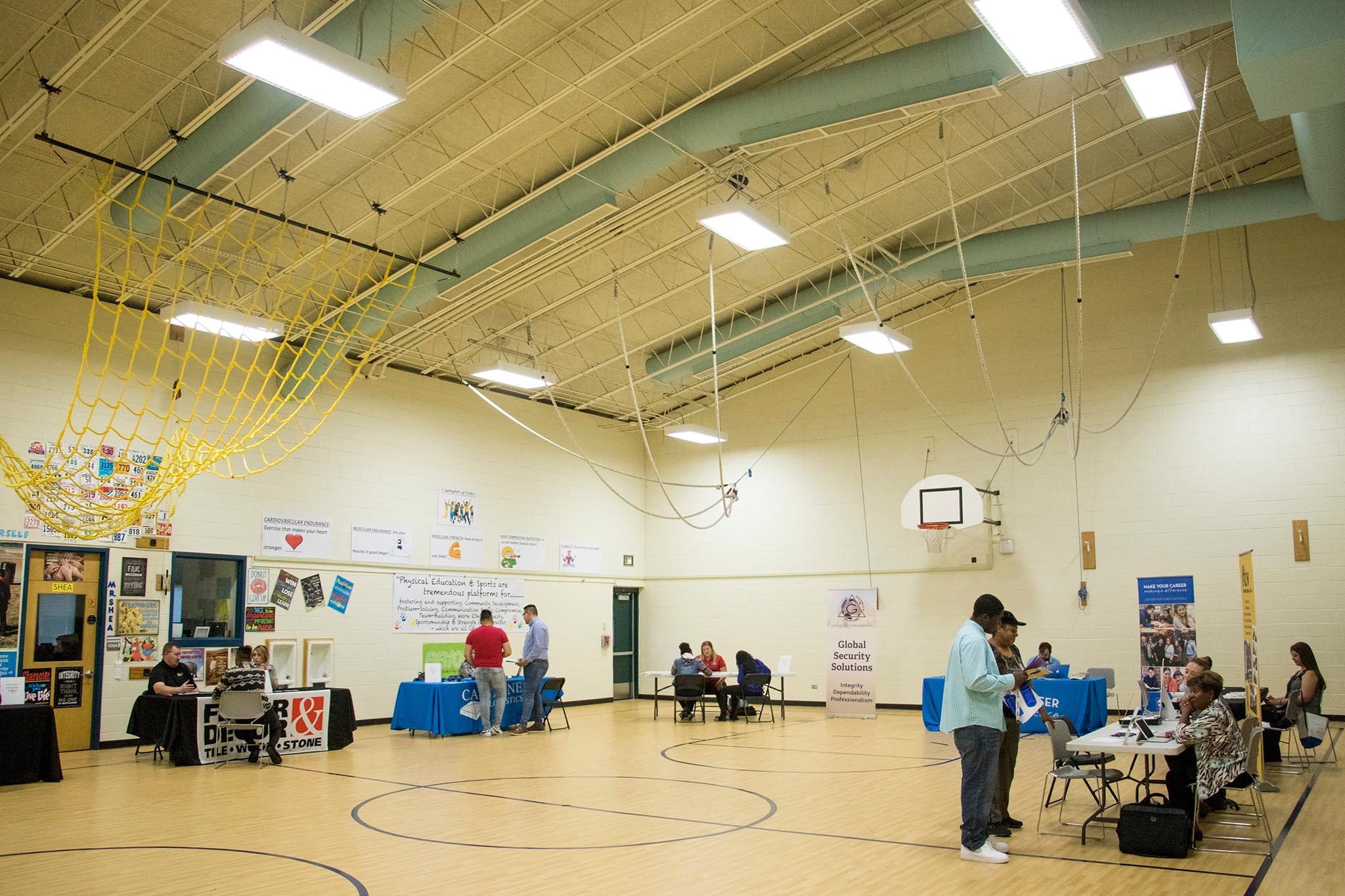
But despite the fact that unemployment numbers are low in the city overall, Tony Anderson of the Denver Office of Economic Development (OED) said, that trend hasn't made it to all of the city's neighborhoods.
"We have a number of disadvantaged neighborhoods and folks that don’t have the access to training and employment opportunities that others do," he said. "Far northeast is a prime example of that."
Barriers to employment, like a lack of training or transportation, is keeping some Denverites from engaging the workforce at all. It's a problem because businesses are hurting for workers while some potential employees are unable to access those jobs.
High housing costs are partially to blame.
Angela Groves, who organized the Montbello job fair through her position with Goodwill career development services, said expensive living costs play into Denver's employment disparity. People are focused on making their bills next month, and that makes it hard to focus on a career for the long haul.
"If they weren’t able to plan longterm for housing, it’s difficult to do it for a job as well," she said.
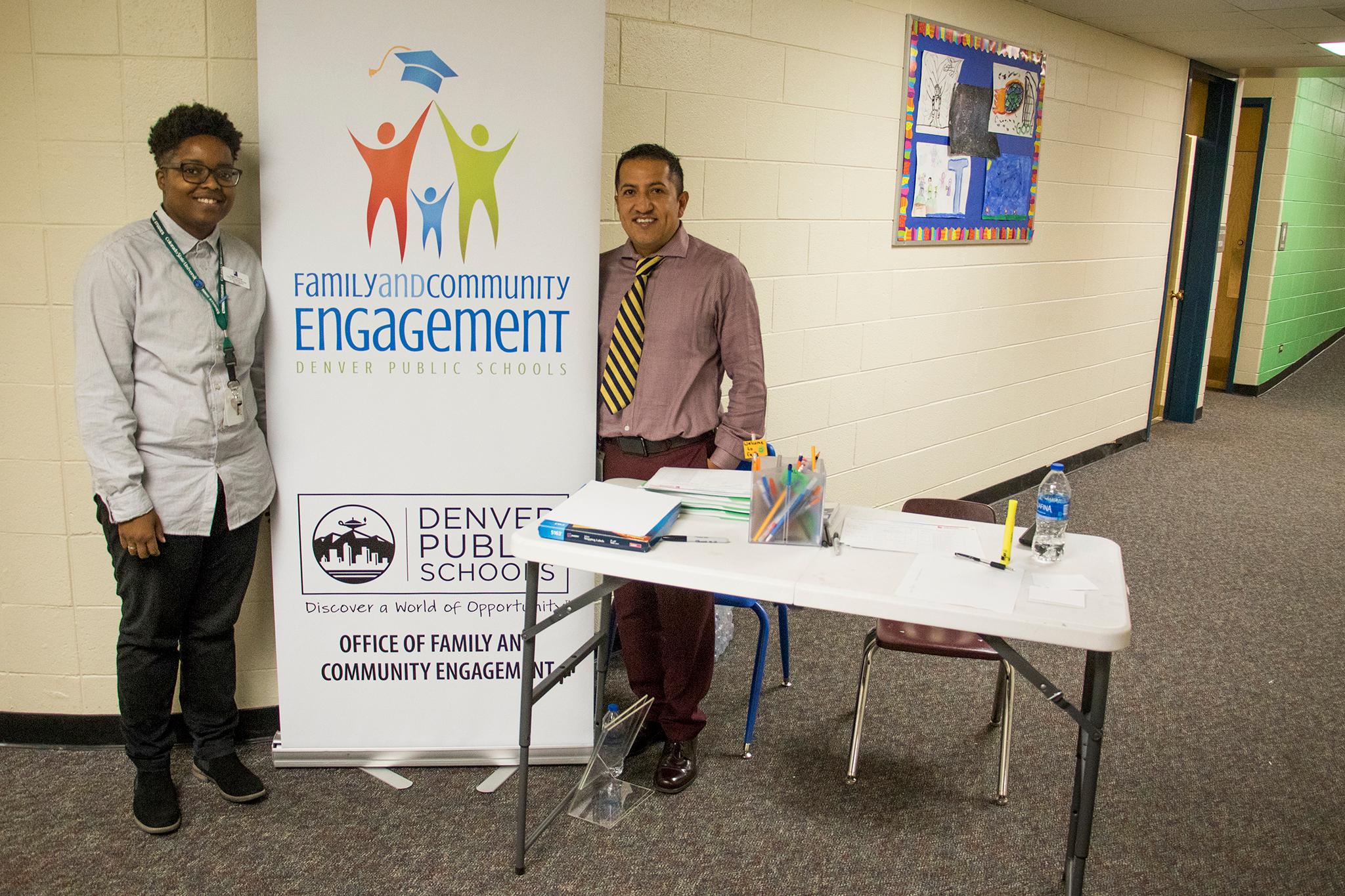
Aaron Williams works for Family and Community Engagement Center based at John Amesse Elementary. It's a community development group that's operated by DPS and also a key organizer of Thursday's job fair. While he hesitated to characterize the entire neighborhood, he said it rings true that jobseekers with the least economic opportunities are also not positioned to seek out long-term employment.
"That’s a very real trait of poverty," he said. Instead of putting in time to get training or pursue a more intensive career search, people might decide: "I’m just gonna fill these needs now."
Lisa Buckley, who founded security staffing company American Automation 18 years ago, said she's been feeling that as she tries to hire. People are less focused on a career today than they were when she started her business.
"People are not looking at the long term," she said. "It’s hard to find people and it’s hard to keep people."
The job fair on Thursday was the second she attended in two days. She only found two people who might end up applying.
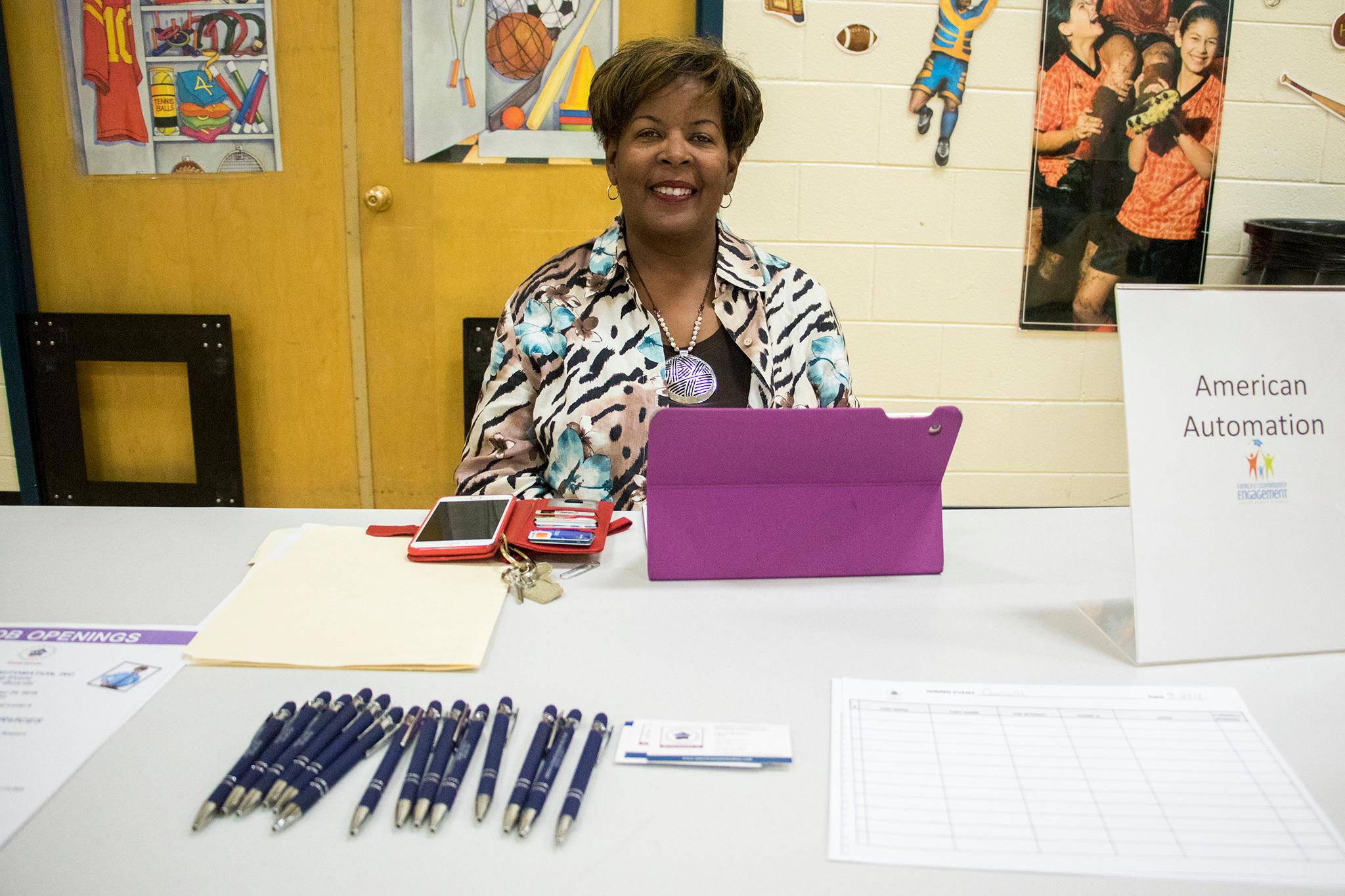
Even though she offers full benefits and a wage she considers to be more than fair, her employees are always leaving. They might be jumping to a new job for a little more money, but she's also seen her workers leave due to an inability to get to work or get a babysitter.
Groves said Denver's best jobs are concentrated downtown, and that makes it difficult for people without a lot of transportation options to access those opportunities. It's another obstacle that keeps some Denverites from accessing rampant hiring demands.
But she's encouraged that there will soon be some new opportunities opening up closer to the neighborhood. The Gaylord Rockies Resort and Convention Center out by DIA is nearly complete, and that's going to represent a lot of positions that aren't too far away.
But for now, the lion's share of opportunities just aren't where jobseekers are living.
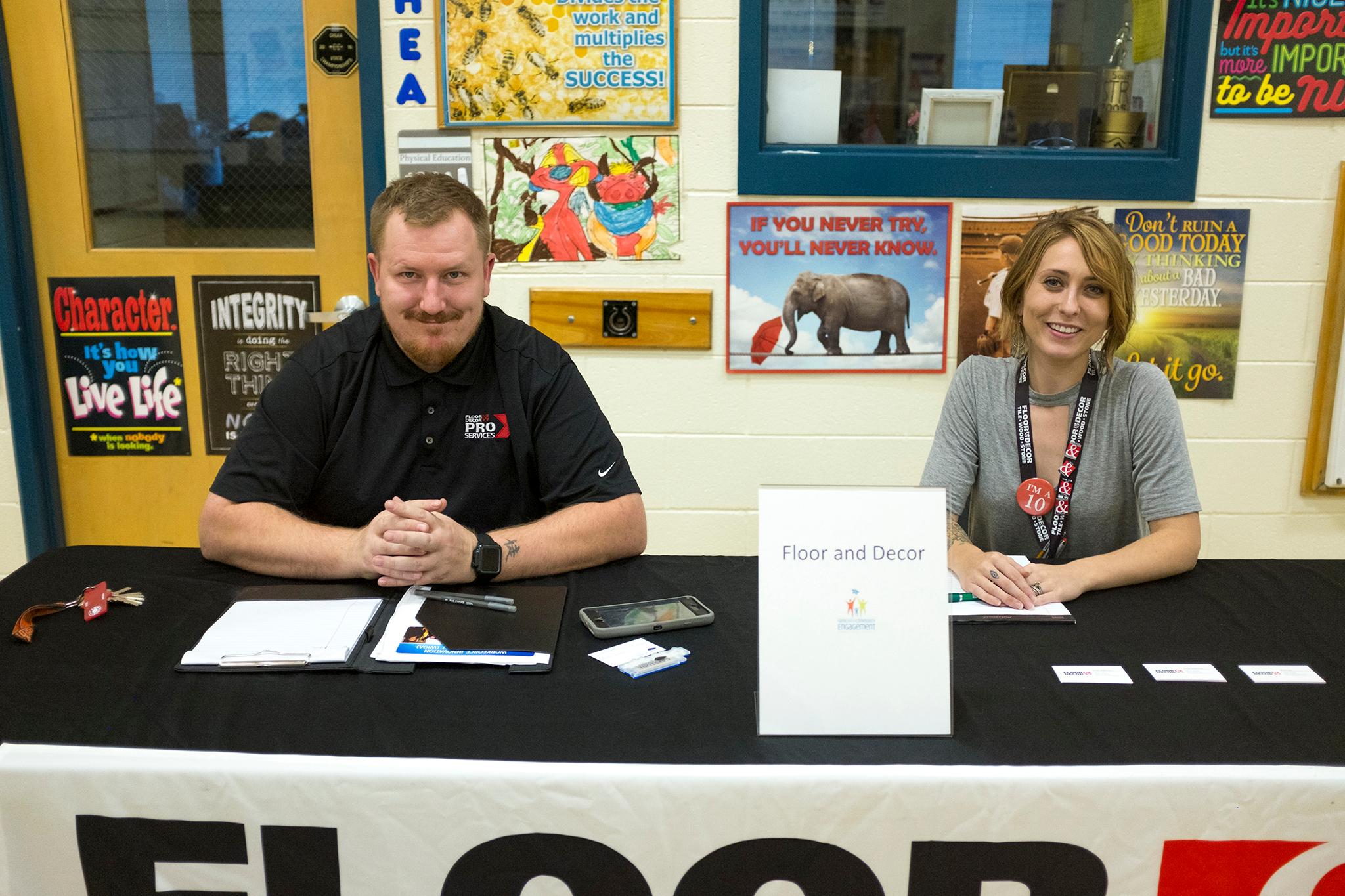
Back at the Floor & Decor table, Nicole Barr estimated that 85 percent of their employees live in Aurora, and many take the bus to work every day.
The fact that employers and workers can't seem to reach each other, she said: "It’s a loss on both sides."
But Anderson said the city is working on it, and an official month dedicated to workforce development is one way they're hoping to fill needs for everyone.
"That was one of our missions," he said, "to spread these events out and really try to target neighborhoods and populations that aren’t quite seeing opportunities that others are."
Through the month of job fairs, Denver OED connected 65 employers with more than 250 job seekers. A spokesperson for the office said they could confirm 24 hires.
And it's not like Anderson's department will slow down just because September is coming to a close.
"Every month is workforce development here," he said.

